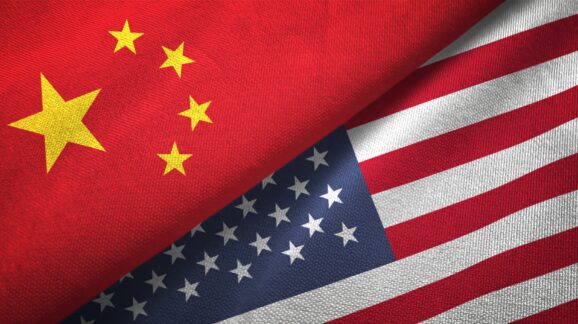Defense bill amendment could help undo China’s unfair advantage in environmental treaties

Photo Credit: Getty
Congress is currently considering the National Defense Authorization Act for Fiscal Year 2024 (NDAA), including a long list of amendments added to the bill. One important amendment would negate China’s unfair economic advantage that comes from being treated as a developing nation under United Nations environmental treaties.
Many such treaties were signed decades ago, such as the 1992 United Nations Framework Convention on Climate Change (UNFCCC) and the 1987 Montreal Protocol on Substances That Deplete the Ozone Layer (Montreal Protocol). Both impose costly provisions on developed nation signatories but extend much more lenient treatment to developing ones. The UN initially classified China as a developing nation under both treaties, and at the time doing so was quite logical.
But these designations have never been updated, even as China has grown into the world’s second largest economy and largest exporter. Now, China’s kid gloves treatment gives it an unfair edge in global markets. For example, under the Montreal Protocol – and subsequent 2016 Kigali Amendment that expanded the Montreal Protocol’s coverage – the US is undergoing a costly transition away from several compounds widely used as refrigerants and in many industrial processes. But China, as a result of its developing nation status, gets to use these compounds for a decade longer than the US. China even qualifies for foreign aid under the treaty, paid for by the US and other developed nations.
Even worse, the UNFCCC, which addresses carbon dioxide from fossil fuel use as well as other greenhouse gases, essentially allows China relatively unrestricted access to low-cost fossil fuels. In contrast, China’s industrial competitors in the US must grapple with aggressive national targets that limit such emissions and are bound to raise energy costs. Note that China still enjoys the developing nation status handed it by the UN in 1992, although the nation’s greenhouse gas emissions have quadrupled since that time and are now are far higher than those of the US.
CEI was at the forefront of highlighting China’s unfair advantage in UN environmental treaties. This included a 2022 letter to the Senate urging a no vote on the Kigali Amendment, based in part on China’s favored treatment. Unfortunately, the Senate ratified the Kigali Amendment by a margin of 69-27, but it included an important amendment requiring that the State Department ask the UN to reclassify China as a developed nation. That amendment passed unanimously, 96-0.
Since that vote, Sens. Chris Van Hollen (D-MD) and Mitt Romney (R-UT) introduced S. 308, the “Ending China’s Developing Nation Status Act, which would extend the China reclassification requirement to all treaties, including the UNFCCC. S. 308 has now been included as an amendment to NDAA. A similar House of Representatives bill has already passed without a single dissenting vote.
While this amendment to NDAA is a step in the right direction, it only requires that the State Department request the UN to change China’s status, and China is very likely to resist. Even better would be provisions, such as those in S. 1035 the “Ending China’s Unfair Advantage Act of 2023,” that withholds US funding for such treaties until China is reclassified as a developed nation and faces the same obligations as the US.
Ultimately, the policy goal should be the withdrawal from these and other treaties not in the best interest of the US. But ending China’s unfair advantage is an important first step.